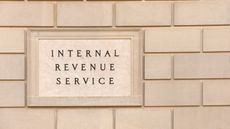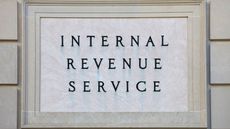Massachusetts State Tax Guide
State tax rates and rules for income, sales, property, fuel, cigarette, and other taxes that impact Massachusetts residents.
- (opens in new tab)
- (opens in new tab)
- (opens in new tab)
- Newsletter sign up Newsletter

Bottom Line
Middle-Class Families: Not Tax-Friendly (Go to the Kiplinger Tax Map for Middle-Class Families)
Retirees: Not Tax-Friendly (Go to the Kiplinger Tax Map for Retirees)
The Bay State is often called "Taxachusetts" – and there are some good reasons why it got that nickname. Massachusetts has a flat rate of 5% of federal adjusted gross income, which can result in some higher-than-average tax bills. Plus, starting in 2023, an additional 4% tax is imposed on income over $1 million.

Sign up for Kiplinger’s Free E-Newsletters
Profit and prosper with the best of expert advice on investing, taxes, retirement, personal finance and more - straight to your e-mail.
Profit and prosper with the best of expert advice - straight to your e-mail.
Property taxes also run high with a statewide median tax rate that's above average. Massachusetts has its own estate tax, too.
On the plus side, sales taxes in Massachusetts are on the low end. The state rate is 6.25%, but there are no local taxes to tack on.
Massachusetts Income Taxes
Massachusetts Income Tax Range
Massachusetts has a flat rate of 5% of federal adjusted gross income. (Note: On November 8, 2022, Massachusetts voters approved a constitutional amendment to add an additional 4% tax on taxable income over $1 million starting in 2023.)
Massachusetts Taxation of Social Security Benefits
Social Security benefits are not taxed by the state.
Massachusetts Tax Breaks for Other Retirement Income
Income from contributory federal government, Massachusetts state, and Massachusetts local government retirement plans is exempt. Income from noncontributory military retirement plans is also exempt. In addition, a deduction is available for contributory pension income from other state or local governments that do not tax Massachusetts public pensions.
Railroad Retirement benefits are also exempt.
Massachusetts Sales Tax
6.25% state levy. No local taxes.
- Groceries: Exempt
- Clothing: Exempt if under $175
- Motor Vehicles: Taxable
- Prescription Drugs: Exempt
Massachusetts Real Property Taxes
In Massachusetts, the median property tax rate is $1,115 per $100,000 of assessed home value.
Massachusetts Property Tax Breaks for Retirees
Massachusetts homeowners and renters who are 65 or older may qualify to claim a refundable "circuit breaker" tax credit on their state income taxes to offset real estate taxes or rent paid during the year on their principal home. For 2022, the senior's total income cannot exceed $64,000 for a single filer, $80,000 for a head-of-household filer, or $96,000 for married couples filing jointly. For homeowners, the value of the residence for 2022 cannot exceed $912,000. For 2022, the maximum credit is $1,200.
Some Massachusetts cities and towns also offer property tax "work-off" abatement programs, which allow seniors to do volunteer work for their local governments in exchange for a reduction of up to $1,500 on their property taxes. Senior homeowners age 60 or older must meet local program requirements to participate.
Massachusetts Motor Fuel Taxes
Gasoline: 26.54¢ per gallon.
Diesel: 26.54¢ per gallon.
Massachusetts Sin Taxes
Cigarettes and little cigars: $3.51 per pack
Snuff: 210% of the wholesale price
Chewing tobacco: 210% of the wholesale price
Other tobacco products: 40% of the wholesale price
Vapor products: 75% of the wholesale price
Beer: $0.11 per gallon
Wine: $0.55 per gallon
Liquor: $4.05 per gallon
Alcohol sales are exempt from sales tax.
Marijuana: 10.75% excise tax; up to 3% local option taxes may also be due
Massachusetts Estate and Inheritance Taxes
Estates valued at more than $1 million may be subject to a Massachusetts estate tax. Tax rates range from 0.8% to 16%. There is an unlimited marital deduction for property left to a surviving spouse and an unlimited charitable deduction for property left to a qualified charity.
Rocky Mengle was a Senior Tax Editor for Kiplinger from October 2018 to January 2023 with more than 20 years of experience covering federal and state tax developments. Before coming to Kiplinger, Rocky worked for Wolters Kluwer Tax & Accounting, and Kleinrock Publishing, where he provided breaking news and guidance for CPAs, tax attorneys, and other tax professionals. He has also been quoted as an expert by USA Today, Forbes, U.S. News & World Report, Reuters, Accounting Today, and other media outlets. Rocky holds a law degree from the University of Connecticut and a B.A. in History from Salisbury University.
-
-
 Are You Guilty of Financial Infidelity?
Are You Guilty of Financial Infidelity?Nearly one in four Americans are keeping money-related secrets from their partners.
By Emma Patch • Published
-
 IRS Service Improvements Could Bring Faster Tax Refunds
IRS Service Improvements Could Bring Faster Tax RefundsRecent IRS improvements mean taxpayers could see faster tax refunds next year and beyond.
By Katelyn Washington • Published
-
 How to Lower Your Tax Bill Next Year
How to Lower Your Tax Bill Next YearKnowing how to lower your tax bill (pay less taxes) when it's time to file your return next year requires some strategizing through the rest of 2023. Here are some tax tips to help make it happen.
By Katelyn Washington • Published
-
 Indiana Storm Victims Have an Extended IRS Tax Deadline
Indiana Storm Victims Have an Extended IRS Tax DeadlineIndiana taxpayers impacted by recent severe storms have an extension of the April 18 deadline to file federal tax returns.
By Katelyn Washington • Published
-
 IRS Says File Soon for $1.5 Billion in Unclaimed Tax Refunds
IRS Says File Soon for $1.5 Billion in Unclaimed Tax RefundsUnclaimed tax refunds from 2019 are waiting for millions of people who might not know it – but only if they file the pandemic-era tax return soon. Are you one of them?
By Kelley R. Taylor • Published
-
 Tax Tips for Last-Minute Filers
Tax Tips for Last-Minute FilersTime has run out for most people to file taxes for 2022, but these tax tips could help you file soon after the tax deadline and possibly keep more money in your pocket at the same time.
By Katelyn Washington • Published
-
 How to Pay the IRS if You Owe Taxes
How to Pay the IRS if You Owe TaxesThere are several ways to pay the IRS if you owe taxes, but just because you can pay your tax bill over time doesn’t always mean you should.
By Katelyn Washington • Published
-
 Who is Required to File a Tax Return, and Who Isn't
Who is Required to File a Tax Return, and Who Isn'tIf you meet certain income requirements, you are required to file a federal tax return (or get an extension) by Tax Day. You could face penalties if you don't.
By Katelyn Washington • Published
-
 California Tax Deadline Extension: What You Need to Know
California Tax Deadline Extension: What You Need to KnowSome Californians have more time to file federal and state tax returns because of natural disasters.
By Kelley R. Taylor • Published
-
 IRS Says Some Stimulus Check Recipients Should File an Amended Tax Return
IRS Says Some Stimulus Check Recipients Should File an Amended Tax ReturnSome early filers who received state "stimulus" payments may need to file an amended tax return to possibly get a refund.
By Kelley R. Taylor • Last updated









